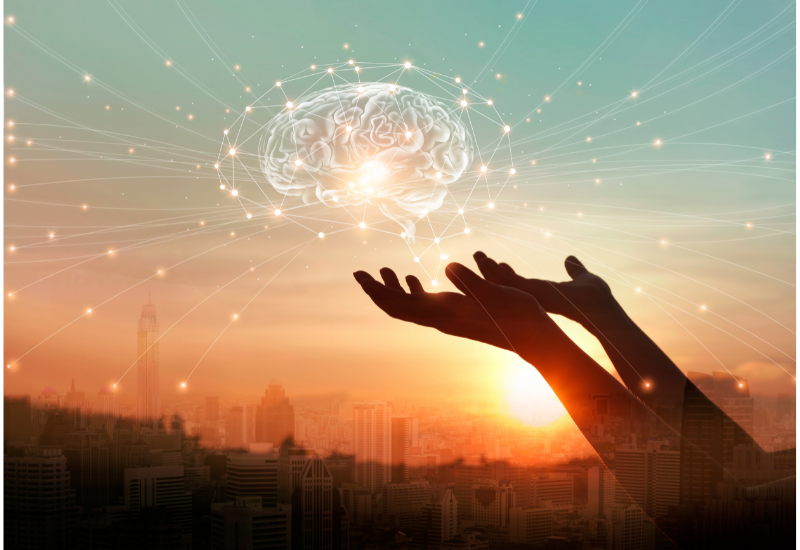Are Philosophers Smart or Wise? The Difference Explained
Since the amount of philosophers our planet has produced is almost endless, it is hard to generalize whether the average philosopher was smarter than the average non-philosopher. Many of the philosophers who have ever lived have never been heard of. Since only those with truly groundbreaking ideas, have been widely published, we take a close look at this group.
Since I have personally been involved with various philosophers for a number of years and some of them have opened my eyes, I have wondered whether most philosophers are rather pragmatically clever or rather wise.
If we understand smart in the sense of conventional intelligence, i.e. solving complex problems as efficiently as possible, then one can say that philosophers are not particularly smart. However, there are various theories that there is more than one form of intelligence in which philosophers score above average.
Furthermore, it is important to note that there is a big difference between a smart person and a wise person. An amusing saying comes to mind in this regard:
„Smart is to know that botanically a tomato is a fruit, wise is to still not mix it in a fruit salad.„
- Unknown
It is almost impossible to find a connection between wisdom and prudence. There are a large number of people who are wise, but far from being wise, such as many company executives who very wisely pursue the greatest possible profit, but disregard the long-term consequences for the planet and their fellow human beings. Likewise, there is a large amount of people who are wise, but not smart. An example of this would be someone who knows that time spent with loved ones is worth a lot, but has no idea how a gasoline engine works.
Types intelligence
Whether intelligence is only the ability to solve complex problems efficiently or whether there are other forms of intelligence is a controversial topic. Depending on how one defines intelligence, the answers vary. However, it is also a common view that there is more than one form of intelligence. I will list here the ten types of intelligence that Howard Gardner defines.
Howard Earl Gardner is a U.S. educationalist at the Harvard Graduate School of Education and a professor of psychology at Harvard University. He has defined the following intelligences as being concerned with more than problem solving.

1. linguistic intelligence
The intelligence that enables one to articulate and accurately describe things one thinks one should say. This intelligence is especially present in poets and journalists.
2. logical and mathematical intelligence
As the name suggests, this form of intelligence is used primarily by mathematicians, engineers, and scientists. It is the form we normally think of when we think of intelligence. It is also the form that is almost exclusively required in IQ tests.
As long as you go to school or university or have a job solving complex problems, if you do well on these tests you will think you are very smart. However, the problem comes when you go out into real life and have to fix a car, take care of plants, or have an interpersonal relationship.
3. musical intelligence
Musical intelligence is the ability to hear and reproduce many different sounds, whether through the voice or instruments. It also includes keeping a rhythm or reproducing a melody.
4. spatial intelligence
Spatial intelligence is interesting because it can relate to understanding tight and small spaces as well as navigating large areas. For example, a surgeon or a chess player has an extraordinary ability to navigate in a very narrow space. A soldier, a park ranger, a pilot, or a captain is more likely to have the ability to orient themselves in a large area.
5. physical-kinesthetic intelligence
Physical-kinesthetic intelligence is the understanding of one's own body, like moving one's own body. On the one hand, this means being able to control one's entire body in a targeted manner, as acrobats and dancers do. On the other hand, it also includes working with your hands. Anyone who has ever built something with their own hands - something like a shelf, for example - knows how difficult it is to saw and screw precisely.
6. interpersonal intelligence
Interpersonal intelligence is the interpersonal: how well you understand other people, how you motivate them, how you lead them. Especially in modern times in companies where you work with many other people on projects, this intelligence is useful. Especially managers should have a great interpersonal intelligence.
7. intrapersonal intelligence
Intrapersonal intelligence is the understanding of oneself. What you want, how to get it. Especially in today's world, where we strive for several careers in the course of a lifetime, pursue many hobbies, it is important to know what you want and how to get it.
8. natural history intelligence
Originally, natural intelligence was used to recognize plants and animals. However, since we no longer walk through the forest and pick our own food, this type of intelligence is used a little differently. When we no longer need a function of our brain for what it was originally designed for, we use it for something new. So today, in the world of consumerism, we use natural intelligence primarily to decide which jacket, shirt, or hair style to choose.
9. teaching pedagogical intelligence
Each of us has certainly had one or the other teacher in his or her school career who simply did not manage to explain things in a comprehensible way. This could have been due to the fact that the teaching intelligence of this person was not as pronounced as it should have been for teachers.
If you explain something to children who are four years old and tell them to teach it to other people, they will explain it in much more detail to someone their own age than if they explain it to an adult. In other words, children from about four years old understand that you explain things to different people in different complexities.
10. existential intelligence
Existential intelligence is the ability to ask big questions. Questions like: What does it mean to love? What is the meaning of life? Who am I? No other living being on the planet has this intelligence. Spatial intelligence, natural intelligence, even musical intelligence, on the other hand, can be found in animals.
It is a part of human life to question it. Even small children exhibit this kind of intelligence: they question almost everything. The difference between a child and a philosopher is only that children are hardly interested in the answers to these questions, but mostly just ask the questions.
(If you are interested in Gardner's model, you can find it here as a book)
Now that we have discussed all forms of intelligence, it can be stated: Most philosophers may not do particularly well in logical-mathematical intelligence, but they do in linguistic and existential intelligence.
Of course, one can now say that philosophers are not intelligent in the conventional sense. However, intelligence in the sense of IQ is only practical as long as one is exposed to mathematical-logical problems. As soon as you build a shelf, play the piano or talk to a person of the opposite sex, a high IQ helps you only to a very limited extent.
What wisdom is (simply explained)
Wisdom is independent of intelligence. What distinguishes wisdom from prudence is that the latter is largely gained through experience, whereas intelligence can be applied without experience.
Wisdom is the understanding of interrelationships in various aspects of life or existence. This understanding of contexts usually comes from a world view that is as objective as possible, but also from long observations.

Not for nothing, we often associate wisdom with older people who have already seen and experienced a lot. They have a much larger frame to understand contexts. An 80 year old man has seen and experienced much more than an 18 year old boy. The old man has been able to observe the same patterns of friendships, love affairs and death more often - which gives him a deeper understanding about them.
Of course, one can work on one's wisdom even at a young age by observing things, issues and events more closely and with less bias. Very little is as it seems, most things are much more complex than they deserve a simple answer. Often one sees a reason as the cause of this or that event, but in our world to assume that a single cause will lead to something is reckless.
My own opinion whether philosophers are smart
In my opinion, it is difficult to say whether philosophers as a whole are smart, wise or possibly even stupid. It cannot be denied that most philosophers had at least a great linguistic as well as existential intelligence. It is also hard to deny that most of them were wise, otherwise their words would be long forgotten and we would not still be talking about them after thousands of years.
The philosophers who have fallen into oblivion may have had less of this intelligence, or they may simply have had the misfortune that their publications never reached a wide mass of the population.
But I find it fascinating that for every big question I ask myself, I usually get an answer from people who have long since died. And, that I will not be the first nor the last to ask myself these questions. Possibly my words will reach also once someone in hundred years, possibly also not.
Did you like this article? You can let us inform you about new articles:







